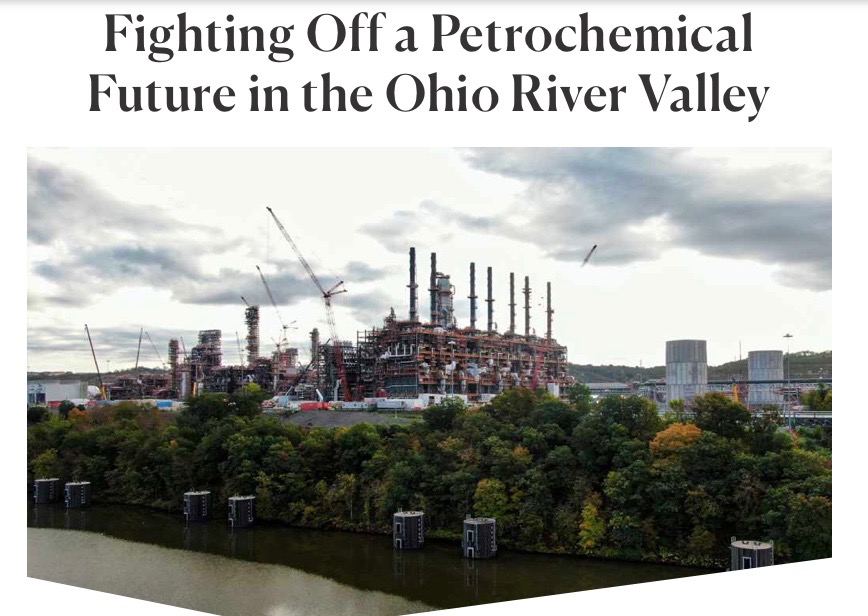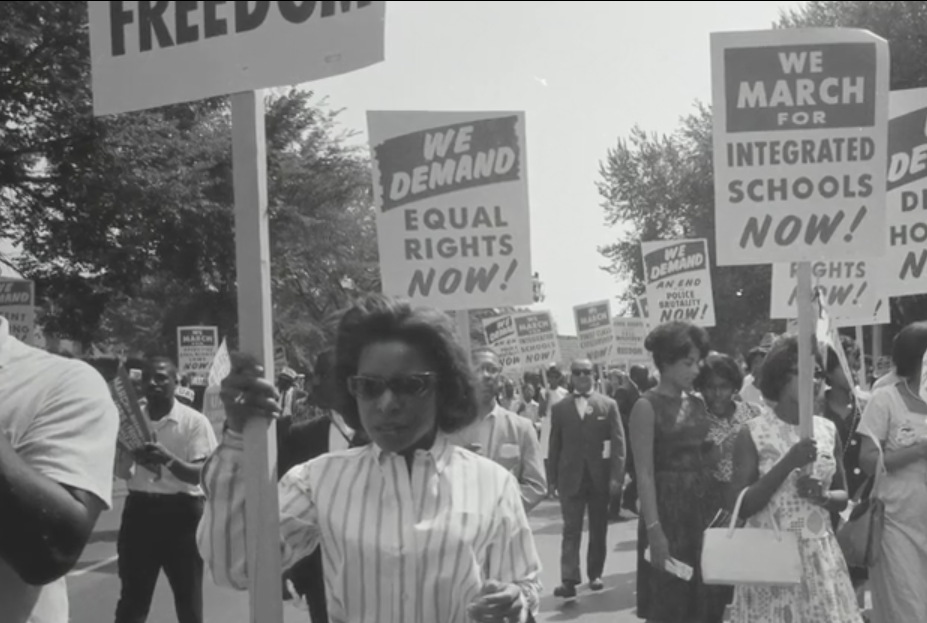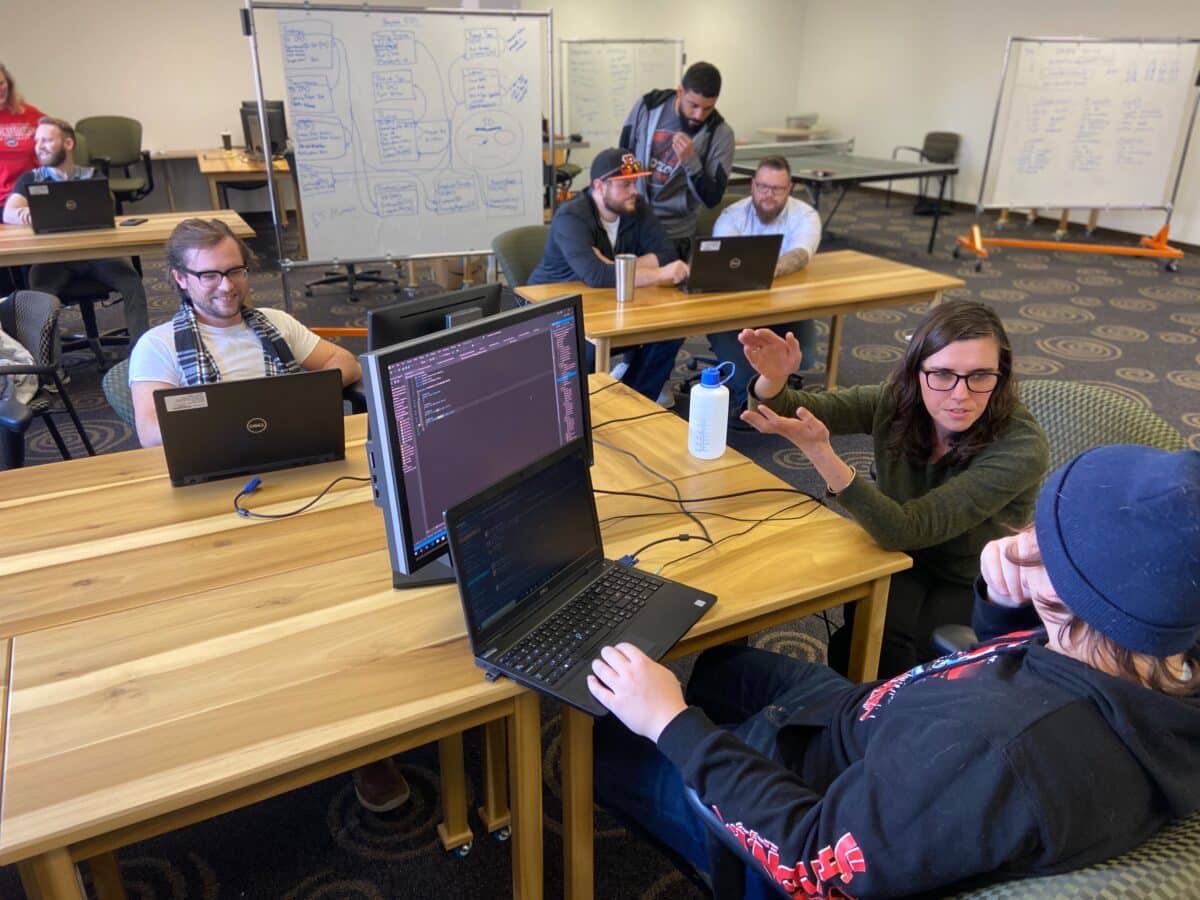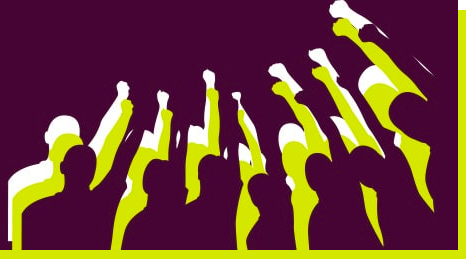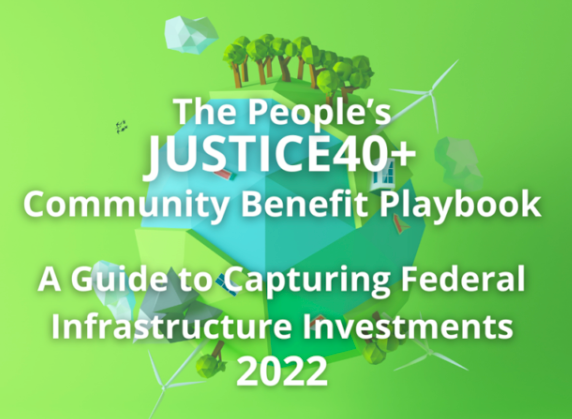Resources
Search below for resources covering the intersection of climate engagement, social science and data analytics.
RESULTS
Fighting Off a Petrochemical Future in the Ohio River Valley
Help people envision more just and sustainable systems. This article looks at efforts in southwest Pennsylvania to oppose plans for gas and plastics expansion in the region. Activists share their strategies, including raising public awareness about the dangers of fracking and plastic, tracking emissions themselves, and advocating for investments in more sustainable industries.
Our Organizing Must Match the Structure of Our Target
Understanding the geography and profit-making process of any big corporation are essential to organizing against it. In the case of organizing against Amazon, it has certainly been strategic to organize labor union(s) at the traditional worker level. However, there have also been labor-community alliances built to organize against Amazon, given the way that the megacorporation affects communities beyond its own workers, by its supports of the carceral state and deportation machine, contributions to climate change, and its role in gentrification. The many different people and groups (especially based on where they are located geographically and their role in the economy) impacted by any bad actor (in this case, Amazon) are where any organizing opportunities exist. And understanding the “value chain” of any target (like Amazon) is necessary to understanding what leverage any organized group of people can have. This article details some cases of groups and coalitions building power against Amazon.
A Big Win For Environmental Justice Organizers
In 2020, a group of New Jersey organizers helped get the country's most progressive environmental justice legislation at the time passed. The short film "A Big Win for Environmental Justice Organizers" follows community-based activists from Ironbound Community Corporation in moving the statewide legislation forward. The Lab hosted a conversation with the contributors, sharing their insights and lessons learned from a community organizing perspective, so that other local groups feel empowered to take on statewide initiatives as well.
Short Film: A Big Win for Environmental Justice Organizers
In 2020, a group of New Jersey organizers helped get the country's most progressive environmental justice legislation at the time passed - S232. This documentary delves into the role of community-based activists from Ironbound Community Corporation in moving the statewide legislation forward. By focusing on the community organizing perspective, this film offers insights and lessons learned from ICC so that other local groups feel empowered to take on statewide initiatives as well. Given community organizers know their neighbors, experience the impact of environmental injustice firsthand, and understand how policies affect people's lives, they are the experts whose voices are critically needed in halls of power. The accompanying discussion guide attached provides a road map for community organizers across the country who hope to translate local relationships into statewide legislative victories.
Environmental Polling Roundup - January 14th, 2022
This post includes climate and environment headlines, data points, and key takeaways from recent public polls - including new polling about Build Back Better and clean energy incentives, a new poll of Black and Latino Americans about climate and environmental justice issues, new findings from Yale and George Mason’s long-running “Six Americas” tracking study, and a newly released summary of the past year’s polling on climate and environmental issues.
You can also find a press release on the EPC’s end-of-year polling takeaways here, which was put out this week by EDF Action, the League of Conservation Voters, NRDC, Sierra Club, and the Climate Action Campaign.
The 4th Arm Documentary
Community organizing has served as the 4th arm of government for black people seeking justice for over 150 years. This documentary highlights stories from the frontlines in Georgia, the epicenter of community organizing in the American South. It follows three organizers, from an elder in the movement to an emerging leader, and their community-building work. It explores how centering values and lived experience is so critical to the work of organizing and central to our ability to achieve the goals of energy and climate justice. When Black communities, Indigenous peoples and communities of color are authentically and thoughtfully engaged through organizing, we can win on climate and create systemic change.
Blueprint for Transition
Early planning is key for sustainable and meaningful community transition. This website provides resources to help coal communities make the transition to a more equitable, sustainable and inclusive future, especially when a coal plant or mine has closed or is slated to close. The resources include tips on how to make a transition plan, information on policies and programs designed to help coal communities, and case studies of how other communities have responded to a plant or mine closure.
Policies for the People
Policies for the People is a website featuring policies to support Black climate justice leadership. The policies on the site have been selected to provide holistic support to those resisting extractivism and creating regenerative and democratic systems in their communities. This is an ongoing project and these policies are just a small sample of what we plan to include. New policies will be added regularly. Some examples include “Baltimore’s Water Accountability and Equity Act,” “California Cooperative Housing Bill,” and “Colorado Just Transition Fund, 21-1290.”
People’s Justice40+ Community Benefit Plan Playbook: A Guide to Capturing Federal Infrastructure Investments
Federal infrastructure and climate investments have the chance to significantly benefit the communities that need them most. This playbook offers frontline groups and community organizations guidance for developing plans to harness the infrastructure investments of major federal initiatives – such as the 2021 Infrastructure Investment and Jobs Act – to meet community needs. This playbook will answer a range of questions about the different federal spending bills, including: What are the various bills? How much money is available? What kind of money is it – grants, loans, contracts? What are the restrictions? What can the money be used for? How will the money flow from the federal government to state and local governments? Who is eligible to get the money? What are the potential community benefits? How can you influence how the money is spent? How can you organize your own community benefit strategy and plan? Where can you get more information and technical support?
Transition Is Inevitable, Justice Is Not: A Critical Framework For Just Recovery
Just Recovery is organizing in our communities today to build the right soil of resistance and resilience (literally and figuratively). Just Recovery also builds the right relationship with land and each other, so that we are not only ready to just withstand these oncoming shocks, but so that we are prepared to use them in those moments to fuel a revolutionary peoples’ movement. This resource describes how peoples everywhere are pursuing a Just Recovery by rooting their practice in core principles, including: creating root cause remedies, practicing revolutionary self-governance, asserting rights-based organizing, demanding reparations, and advancing ecological restoration for resilience. This resource highlights case studies of communities and groups engaging in these aspects of Just Recovery in Texas, California, Puerto Rico, New Orleans LA, the Gulf Coast, New York, New Jersey, the Philippines, and Florida.
Pagination
- Previous page
- Page 3
- Next page
